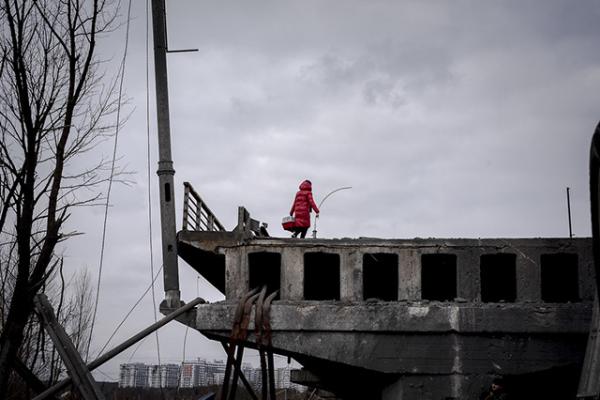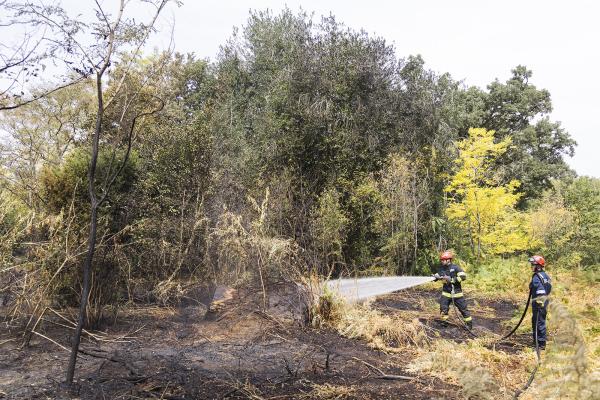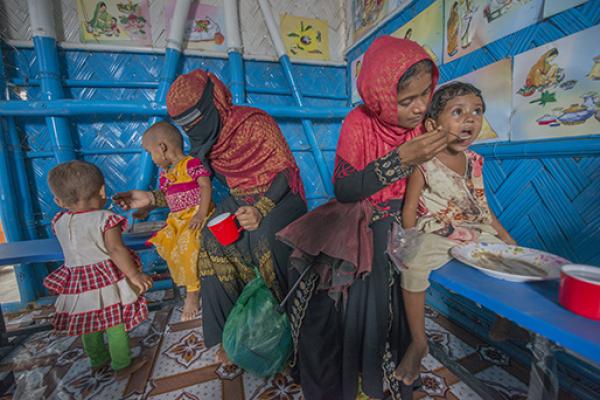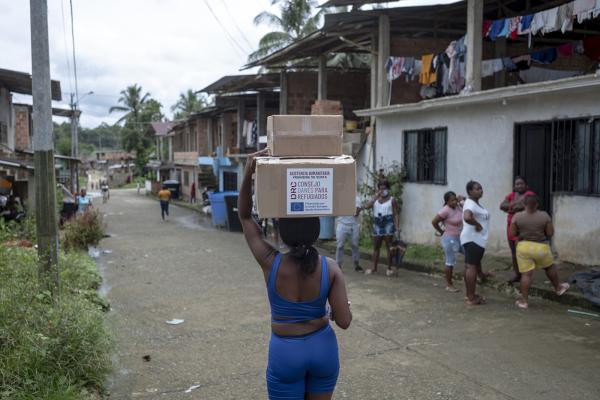In 2023, the EU Civil Protection and Humanitarian Aid Operations department established partnerships with 4 podcasts across Europe. In a series of episodes, podcasters feature the stories of crisis management and emergency response told by experts in the field.
When a disaster or humanitarian crisis strikes, the EU Civil Protection and Humanitarian Aid Operations experts and partners are quickly deployed to deliver life-saving aid to affected populations.
The podcasts take you behind the scenes to discover their personal stories, the challenges they face in their lifesaving work, and shed light on complex crises where the EU is currently active.
Listen to the episodes below and follow #EUSolidarityTalks on social media to learn what it takes to deliver assistance when failing is not an option.
Ukraine, 1 year on
When Russian troops invaded Ukraine in the early morning of 24 February 2022, support from the European Union was already ongoing.
The EU civil protection and humanitarian aid staff quickly proceeded with emergency response after the first shelling.
The Explainer podcast takes you behind the scenes with our head of office in Kyiv, Claudia Amaral.
Listen to the episode to hear her in-depth account of the EU’s humanitarian response, how it has evolved over a year of conflict, and what still needs to be addressed as the cold temperatures roll over Ukraine.
Hear more stories from our staff helping Ukrainians on:
- Globally‘s episode with humanitarian expert Andrea Trevisan, in Italian
- Revista 5W with Claudia Amaral, Head of EU Humanitarian Aid Kyiv Office, and Javier Ochoa, an EU Emergency Response Officer, in Spanish
- Sismique’s interview with Samuel Marie-Fanon, humanitarian expert at EU Humanitarian Aid Kyiv Office, in French.
Learn more about the EU’s support to Ukraine and neighbouring countries.
Preparing for wildfires
The 2022 wildfire season was the second worst year in terms of the highest number of fires and the largest burnt area in the European Union since 2006.
Over 8,600 km² of land was burnt in the EU, an area nearly as large as Corsica. Larger and more numerous fires are becoming more common and spreading to countries which used to be relatively unaffected.
In preparation for a new record-breaking season, the EU is reinforcing its capacity to respond to fire emergencies through the rescEU reserve. The shared resources fleet will add 12 more light aircraft, 3 new helicopters, and more pre-positioned ground teams.
Marcin Pater, EU Emergency Response Officer, was invited on The Explainer podcast to discuss the new breed of ‘mega fires’ and how to fight them.
Listen to the conversation.
Hear more stories from our staff on how we prepare for the wildfire season:
- In Italian: Città‘s episode with Daniele de Rigo (PhD), scientific consultant at Joint Research Centre (JRC) who deals with the field of computational modelling for environment (Earth science and ecology)
- In French: Sismique’s interview with Claire Kowalewski, Colonel in the French fire services, Preparedness and response, Aerial Forest Firefighting capacity, EU Civil Protection and Humanitarian Aid Operations
- In Spanish: Revista 5W’s conversation with Dr Jesús San-Miguel-Ayanz, leader of the European Forest Fire Information System (EFFIS) and Global Wildfire Information System Team, Joint Research Centre.
Learn more about what the EU does to prepare for the wildfire season.
Prolonged and under-reported crises
In recent decades, the number of emergency situations that evolved into long-term and complex humanitarian crises has been dramatically increasing. In 2022, 44 countries were experiencing some form of a prolonged crisis.
As a result, the media and big donors tend to lose interest. The EU Civil Protection and Humanitarian aid staff are making sure that communities in need receive the appropriate support and provide them with food, healthcare and shelter.
In South-East Asia, the Rohingya people have been a victim of persecution, violence, and discrimination for the last 40 years. Nearly 1 million of them live in overcrowded refugee camps in Bangladesh, with many risking their lives to reach Malaysia in dangerous sea crossings.
Listen to The Explainer’s episode with Michelle Cicic, the Head of EU Civil Protection and Humanitarian Aid Regional Office for South-East Asia Pacific, Lillianne Fan and Hassan Bin Roshid, from the Geutanyoe Foundation, to hear them discuss the current crisis and the humanitarian support they provide.
Hear more stories from our staff on the ground and in headquarters who are dealing with crises in Haiti, Syria and the Horn of Africa:
- In French: Sismique’s episode about the gang violence, acute food crisis, and disease outbreaks plaguing Haiti, in conversation with Mohamed Mechmache, our Humanitarian Field Expert working in the region.
- In Spanish: In Revista 5W discusses the EU’s efforts to support vulnerable communities in the Horn of Africa with Javier Rio-Navarro, our Head of Office in Somalia.
- In Italian: After a decade-long war, Syria was hit by the strongest earthquake in living memory. Globally talks to Manuela Fischanger, our Desk Officer for Regional, Thematic and Operational Issues dealing with Syria.





